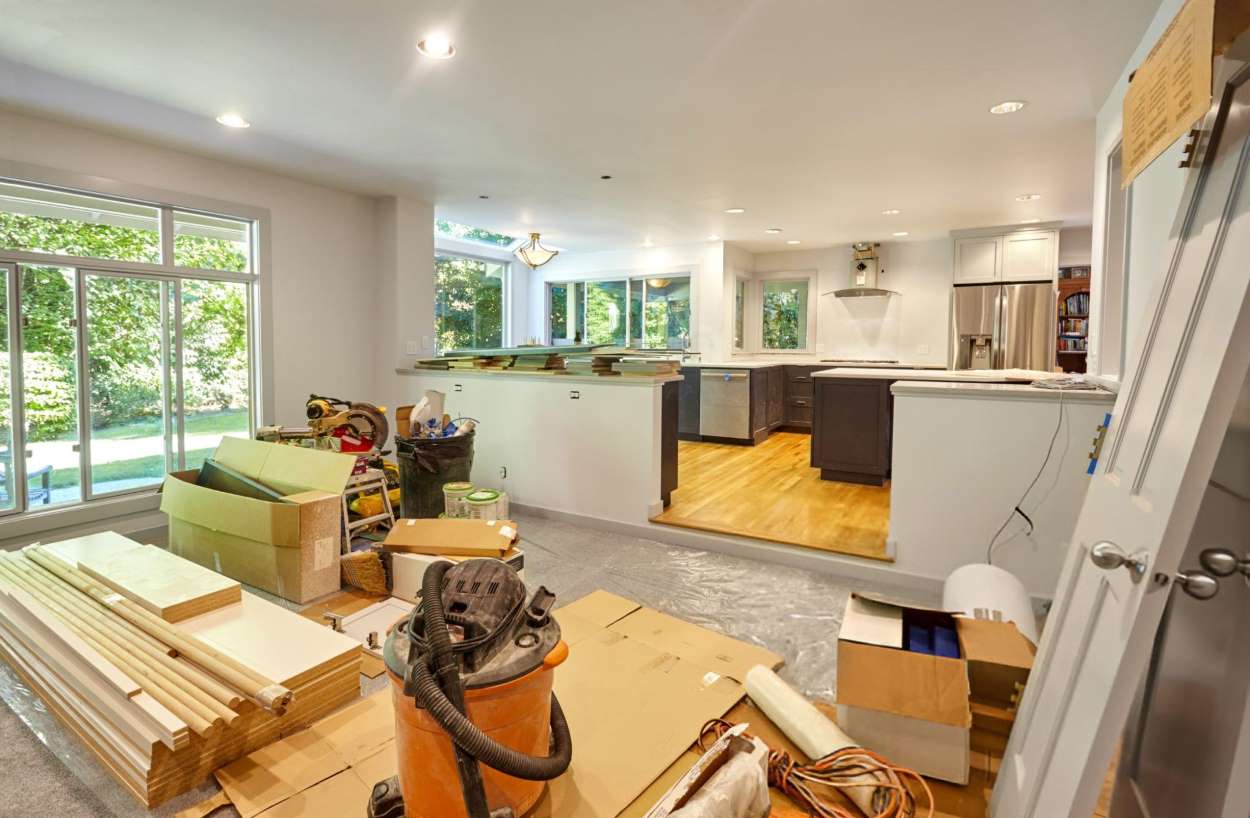
What You Need to Know About Home Renovation
Home renovation is an exciting yet challenging endeavor that many homeowners undertake to improve their living spaces. What you need to know about home renovation encompasses a wide range of considerations, from planning and budgeting to execution and final touches. Understanding these aspects is crucial for anyone thinking about renovating a house.
This guide explores the essential steps to take before starting your project, key areas to consider for renovation, and common pitfalls to avoid. You’ll gain insights on how to plan your home renovation effectively, make informed decisions about materials and contractors, and ensure your project stays on track.
Contents
Planning Your Home Renovation
Setting clear goals
When planning a home renovation, set clear objectives to stay on track and avoid extra costs. Consider goals like adding space, repurposing rooms, or enhancing style and efficiency. Communicate these goals clearly to ensure the final result meets your expectations.
Establishing a realistic budget
Creating a budget is essential for home renovation planning. Homeowners should research material and labor costs, with a 10-20% buffer for unexpected expenses. It’s wise not to spend over 10-15% of the home’s value on one room. Financing options include cash, home equity loans, or credit lines. To save money, consider DIY tasks like demolition or painting.
Creating a timeline
A well-planned timeline is essential for a successful home renovation. The duration of a project can vary greatly depending on its scope and complexity. For a 2,500 square foot whole home renovation, the process typically takes 8 to 10 weeks. However, factors such as changes in plans, material availability, inspections, and weather can affect the timeline.
It’s important to work closely with contractors to develop a realistic schedule, allowing for potential delays and unexpected issues. This timeline should include all phases of the renovation, from initial demolition to final touches and cleaning.
Essential Steps Before Starting
Researching and gathering inspiration
Before embarking on a home renovation project, it’s crucial to gather inspiration and ideas. Homeowners can utilize online platforms like Pinterest and Houzz to collect and organize design concepts. These tools offer a wealth of images and project examples, allowing users to create boards or ideabooks for specific rooms or design elements.
Magazines and brochures can also provide valuable inspiration, which can be compiled in a physical binder for easy reference. By taking the time to research and gather ideas, homeowners can better communicate their vision to contractors and designers.
Obtaining necessary permits
One of the most critical steps in home renovation is obtaining the required permits. Homeowners should assess their project’s scope to determine which permits are necessary. Plumbing, electrical work, and structural changes often require approval from local permitting offices.
The cost of permits can vary widely, ranging from USD 30.00 to USD 3000.00 or more, depending on the project’s complexity. Failing to obtain proper permits can result in fines, complications during home sales, or even nullification of homeowner’s insurance policies.
It’s advisable to consult with an architect or contractor to ensure all necessary permits are secured before starting any work.
Hiring the right professionals
Selecting the right professionals is essential for a successful home renovation. Homeowners should start by asking for referrals from friends and family, as well as researching online reviews. It’s crucial to verify that contractors are licensed, insured, and have a good reputation in the industry.
When interviewing potential contractors, homeowners should ask about their experience with similar projects, their timeline, and their communication style. It’s also important to discuss payment schedules and ensure that all terms are clearly outlined in a written contract.
By carefully vetting and selecting the right professionals, homeowners can help ensure their renovation project runs smoothly and meets their expectations.
Key Areas to Consider Renovating
Certain areas of a home renovation offer the best value and impact, with the kitchen being a key focus. A minor kitchen remodel, costing around $26,790, can provide a resale value of $22,963, involving updates to flooring, cabinets, countertops, and appliances with midrange options. Larger, more expensive kitchen renovations often yield a lower return on investment.
Bathroom makeovers are a popular choice in home renovations, adding appeal to potential buyers. A midrange remodel, costing around $24,606, can offer a 66.7% return on investment by updating fixtures like the tub, toilet, and vanity. However, larger bathroom renovations often yield a lower return.
Improving living spaces can greatly enhance a home’s appeal and functionality. Homeowners now favor open, airy designs that suit modern living. Reworking floor plans or converting unused areas, like turning a basement into a livable space, can offer an ROI of up to 86%. Adding features like multiple kitchen sinks, flexible pantry storage, or a spa-like bathroom can make the home more appealing to buyers.
Avoiding Common Renovation Pitfalls
Expecting the unexpected
When renovating a house, it’s crucial to anticipate unforeseen challenges. Many homeowners make the mistake of planning their projects down to the last day, only to face disappointment when things don’t go as smoothly as expected. To minimize stress, it’s wise to assume that the renovation process won’t be perfect.
Experts recommend setting aside a contingency fund of 10-15% of the total budget to handle unexpected issues that may arise during the renovation. This financial buffer can help address hidden structural problems, plumbing complications, or other surprises that often inflate costs.
Preparing for disruptions
Home renovations inevitably bring a level of chaos to daily life. To manage these disruptions effectively, homeowners should create a designated living area away from the construction zone. Using plastic barriers or zippered plastic doors can help contain dust and debris. Regular cleaning and dusting of the living area can maintain a semblance of order.
For major renovations, it may be worth considering temporary accommodations during the most intensive phases of construction. Coordinating with contractors to understand the project timeline and planning activities accordingly can help minimize disruptions to daily routines.
Balancing cost and quality
Finding the right balance between cost and quality is essential in what you need to know about home renovation. While it’s tempting to cut corners to save money, this approach can lead to future problems and expenses. Investing in high-quality materials for essential aspects of the project, such as plumbing, electrical wiring, and structural elements, is crucial for long-term satisfaction and value.
However, homeowners can save on decorative elements or find cost-effective alternatives for non-essential items. Researching materials, considering factors like durability and maintenance requirements, and seeking guidance from professionals can help make informed decisions that balance both style and substance in the renovation process.
To wrap up, a successful home renovation relies on clear goals, realistic budgets, and the right professionals. Whether updating a kitchen, remodeling a bathroom, or transforming living spaces, each project presents unique challenges and opportunities. With these insights, homeowners can smoothly navigate renovations and create spaces that meet their needs and improve life quality.
Frequently Asked Questions
In what order should you renovate a house?
Start by addressing structural issues and repairs, like roofing and foundation. Next, focus on plumbing, electrical, and insulation updates. After that, move on to drywall, painting, and flooring, finishing with cabinetry, fixtures, and final touches.
What do I need to know before remodeling?
Before remodeling, set clear goals, research costs, and establish a budget with a buffer for unexpected expenses. Understand building permits, plan for disruptions, and hire reputable contractors or professionals if needed.
What to buy first when renovating a house?
Prioritize purchasing essential materials like plumbing fixtures, electrical components, and structural supplies. Buy large items early, such as appliances, cabinetry, and flooring, to avoid delays during the project.
What is a realistic budget for home renovation?
A realistic budget depends on your home’s size, location, and project scope. Generally, allocate 10-20% of the home’s value, ensuring funds cover desired upgrades without overspending.


